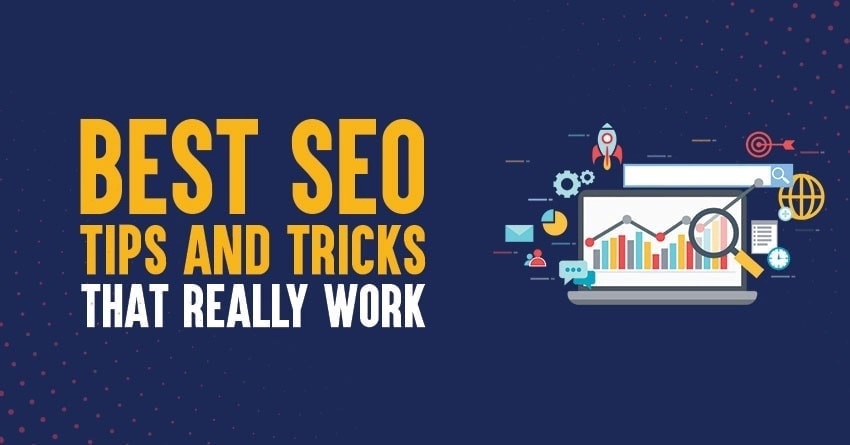Just built an awesome website? Great. But who cares if no one sees it? These simple SEO tricks and tweaks will help you rank well in Google, Bing, and other search engines and get your site seen.
There are many reasons to create a website. Maybe you built an amazing product that you’re ready
to sell online. Maybe you’ve written your magnum opus, a personal essay that will certainly win the
Pulitzer once it's uploaded to the internet. Maybe you just want to share your hobbies with the world.
Unfortunately, none of that matters if no one visits your website.
If you want people to discover your website,
search engine optimization (SEO)
is a must. SEO is a
blanket term for the processes that webmasters use to boost their sites' chances of ranking well in
search engines, such as
Bing
and
Google
. Whether your site is running on a shared, VPS, or
dedicated server, you should leverage SEO so that your site (hopefully!) appears on the first
results page after someone keys a term into a search engine. The following
SEO tips
won't guarantee
superb results placement, but they're essential for helping search engines—and people, by extension—find your site.
1. Build a Well-Designed Website
If your site is new, large, or contains many multimedia files, considering creating a sitemap.
That's a file that provides search engines with the information they need to swiftly crawl and index
site pages, video, and audio. Google has a useful sitemap generator. Bing does, too. In fact, your
website must contain a sitemap in order to appear in Google News.
In addition, your website should encourage visitors to explore and share your content. Selling
products? Your homepage should spotlight at least a few optimized product images (more on that later).
Running a blog? Link to your latest posts and marquee essays. These actions appeal not only to visitors,
but search engines, too. It shows them what you consider important.
On the backend, your website's title field should distill the entire site down to its name and relevant
keywords, as that's what appears in search results. So, carefully choose your site's name and keywords
to attract people and spiders. We'll show you how to do that in just a bit.
2. Focus on a Specific Topic
Search engines want to point people toward the most authoritative and correct results. So, if you're an expert in a particular topic that you wish to explore, your website's content should reflect that. Want to share your recipes with the world? Then food should be your site's focus. Don't blend pancake content with, say, metalworking. After all, it's unlikely that your website is a massive multinational corporation or a large news organization that needs to be all things to all people. Specificity is also key. If you’re a fisherman with an excellent perspective on fly fishing, as opposed to deep-sea angling, that’s what your website should be about. Lean into what you bring to the table; it'll help your web presence .
3. Pick Relevant Keywords
A focused topic makes it simple to pick your site's keywords. What are keywords? They're the main
words that lead people to your site. To properly use keywords, you take your website's various elements—articles,
images, videos, podcasts—and summarize them in SEO-friendly terms. You’ll also want keywords in your site's URL,
header tags, meta descriptions, and alt attributes. Simply access your website's backend and place the terms in the
keyword fields (if you're using a website builder) or edit code (if you prefer entering a web hosting service's
back-end and tinkering with HTML).
You should optimize keywords to match people's searches. If your website sells hand-knitted scarves, then “scarf”
and “knitting” should be your keywords. As you probably guessed, those same keywords will pull up other sites when
someone performs a search. As a result, you should back up standard keywords with long-tail keywords, which are more
specific searches.
4. Create Quality Content on a Consistent Basis
Content quality
factors into SEO, too. For example, a blog about car engines needs to answer questions
or illuminate niche topics. Rather than rambling on about engines, it’s best to go in-depth with
information-packed articles, such as
“Social Media Trends for 2022”
or
“7 Effective Promotional Ideas for Online Business.”
Search engines prioritize websites with fresh, changing content. You don’t want to copy and paste content
from another site. In fact, search engines will penalize your site for that. Focus on high-quality, original material.
In addition, you need to update your website consistently, whether that’s in the form of new articles,
art, or products. Visitors want a reason to return to your site or share your content to Facebook, Twitter, Instagram, or other social media networks. Search engine spiders are eager to check out fresh content, too.
Establishing off-site links is necessary for building valuable authority. Search engines look for
links to your site from other trusted sites, which include those aforementioned social media networks
or other highly trafficked websites. If your site offers focused, quality content that results in a
link from The
New York Times,
search engines will see your site as noteworthy and boost its rank.
5. Create Attractive Page Titles and Headlines
A page title and headline are similar, but distinct, ways to name the same website page. The former is a
keyword-centric title designed to appease the search engine gods, while the latter is designed to please people
who click through to the page.
For example, "2021 Honda Civic Review" is a tight, SEO-friendly page title that only appears in search results.
After all, page titles are written for Bing and Google love. "10 Reasons Why the 2021 Civic Is Honda's Best Car"
is a great, on-page headline that encourages shares and returning readers. That's good SEO, too. Of course, pages
and headlines can have the same titles.
Experiment to see which method works best.
As a precaution, make sure your page title and headline accurately describes what's on the page. Don't name a page
"2021 Honda Civic Review" if the content doesn't reflect that. That's lying to the reader, which Google and other
search engines frown upon. You'll lose trust, authority, and SEO rank.
6. Optimize Your Images
On the web, images are the way we color inside the lines; bright, clean images make a website inviting. Beyond that, images highlight the product or services that you want to sell, and break up large text blocks to keep readers engaged. Images are important, so you should take time to optimize them.
7. Reduce Your Website's Load Time
According to Google's market research, 53 percent of mobile audiences leave a site if it takes more
than three seconds to load. Their time is valuable, so don't encourage them to bounce with a slow-as-molasses website.
You can analyze your site's speed with Google PageSpeed Insights, Google’s Test My Site, or Pingdom.
These tools offer detailed information on how you can best improve your website's load time.
This includes replacing images or scripts that might be taking a while to load.
8. Write Information-Packed Meta Descriptions
A meta description, also known as a snippet, is a small paragraph within each of your page's HTML code. Meta descriptions appear in search engine results beneath page titles, and explain a page's purpose in a more in-depth fashion. It’s here that you can write longer descriptions (approximately 150 characters!) that wouldn't fit in page titles. Warning: don’t throw all your keywords in there. That's keyword stuffing, and search engines frown on that. Instead, write your meta description in simple language.
Conclusion:
SEO is vital for your business: SEO gives you the power to be the answer to potential customers’ questions. In addition to visibility and traffic increase, SEO contributes to your authoritative voice in your field. Authority then leads to brand trust, which ultimately leads to brand loyalty. If you can’t manage the technical SEO, don’t worry. Saabsoft the expert SEO company based in Dubai, UAE offers for you the best SEO packages in Dubai, UAE with competitive prices. Our SEO expert team will help, guide and advise you of what works the best for you and why!. Saabsoft is believed to be the best SEO company based in Dubai, UAE and serving the Middle East, we gained our reputation through Market Customers Votes.







